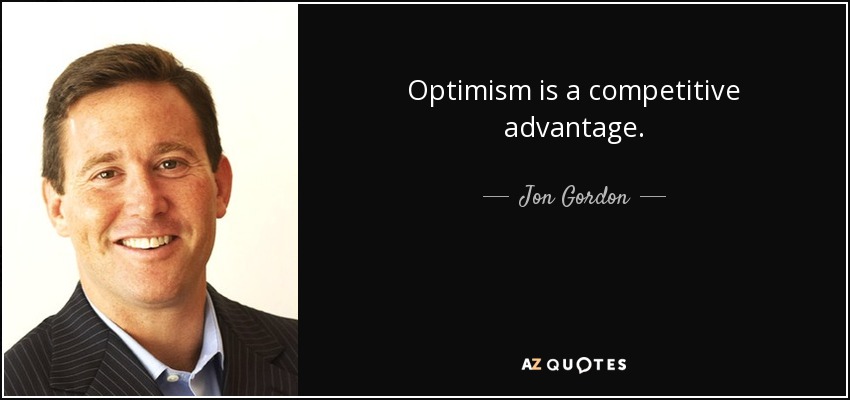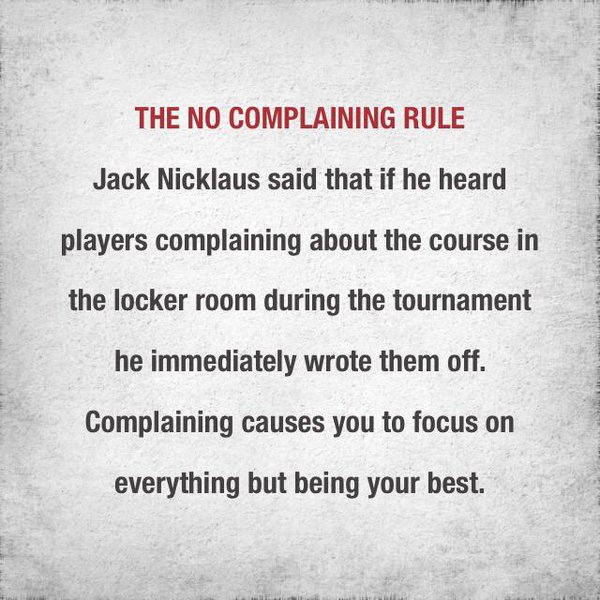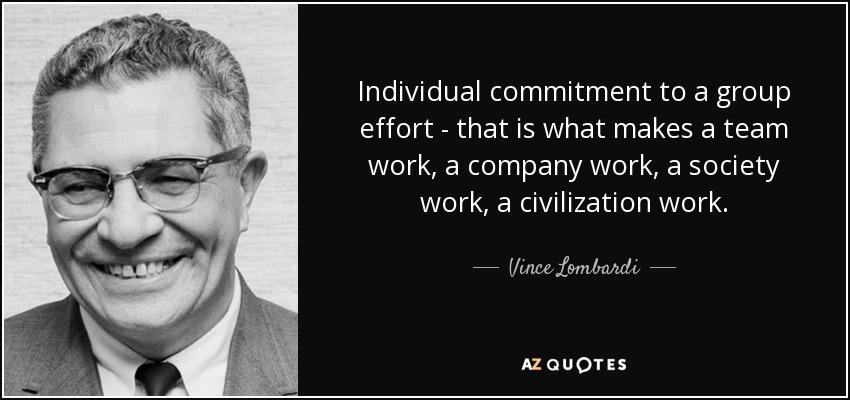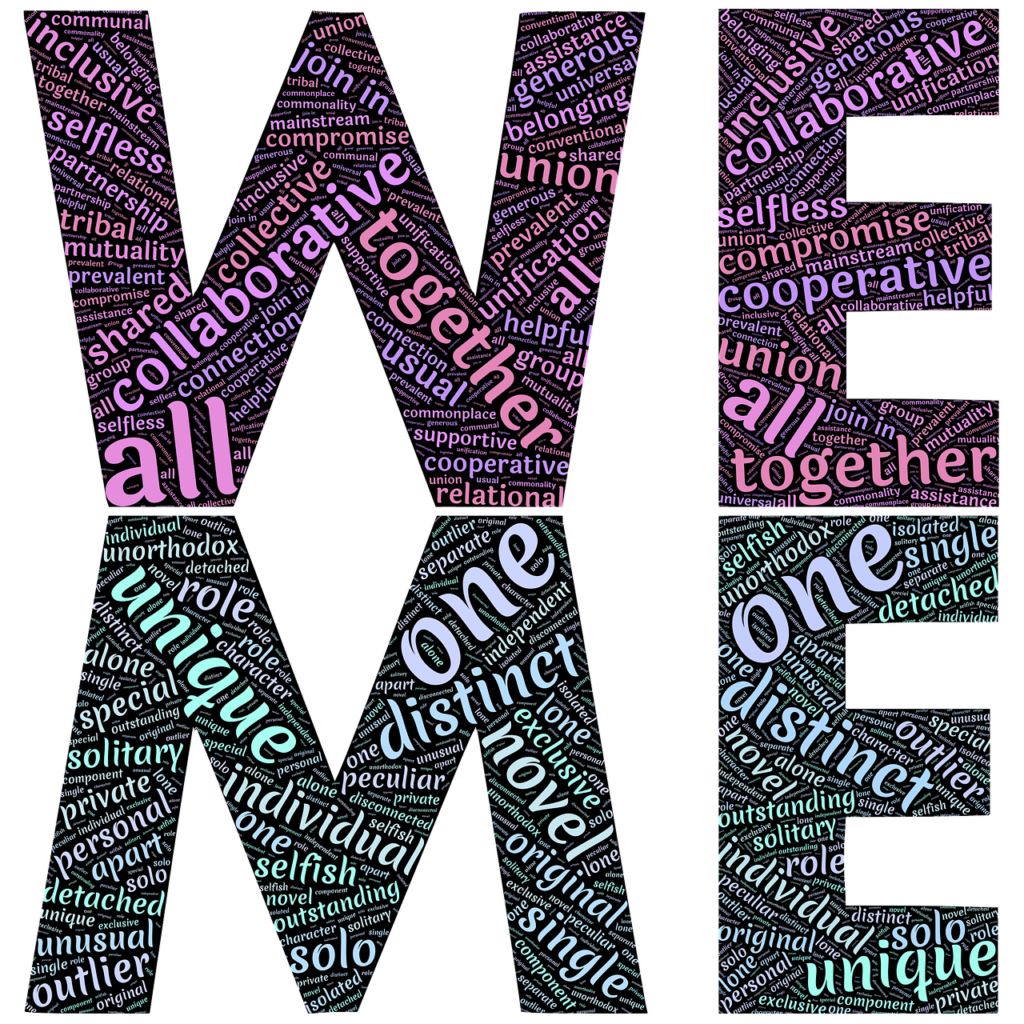Click here to return to Blog Post Intro
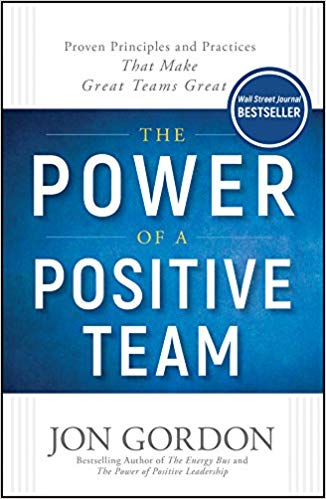
No One Creates Success Alone
We are better together, and together we accomplish great things.
A positive team is created by a group of individuals who come together with vision, purpose, passion, optimism, grit, excellence, communication, connection, love, care, and commitment to do something amazing and create something incredible together.
At NASA, here’s what we recently developed to describe our Vision, Mission, and Promise for our Human Resources team –
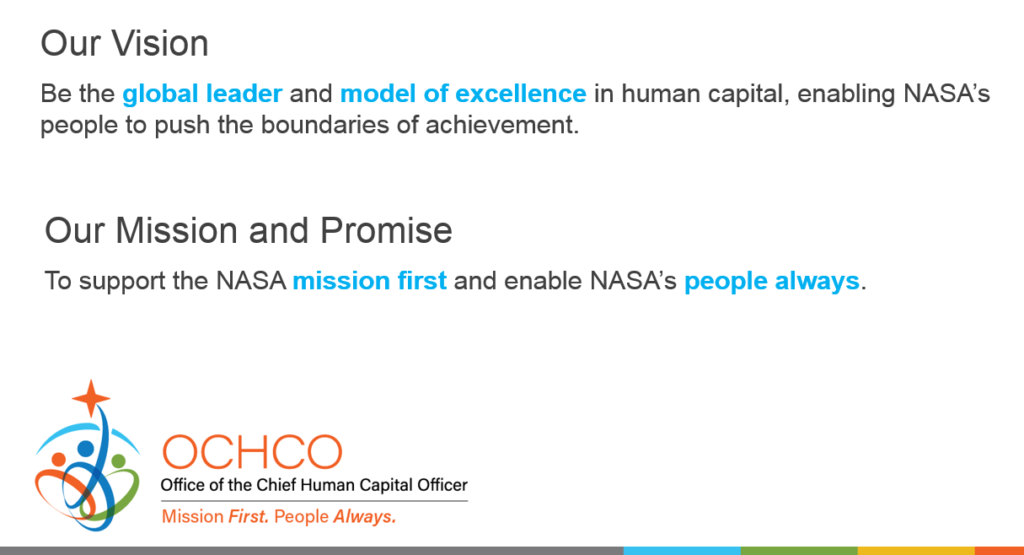
Gordon explains that he wrote The Power of Positive Leadership and You Win in the Locker Room First to help leaders build their teams. This book—The Power of Positive Teams—is meant for teams to read and learn together.
If you are willing to learn together, grow together, unite together, and act together, you will accomplish more than you ever thought possible.
The Power of Positive
Positivity is more than a state of mind. It’s a power that gives teams a competitive advantage in business, sports, creativity, and life.
- More engaged
- More likely to overcome all the forces against them and make a greater impact
- Not about fake positivity
- About real optimism, vision, purpose, and unity
- Confronting the reality of challenging situations
- Working together to overcome challenges
Research by Manju Puri and David Robinson at Duke University found that optimistic people were more likely to succeed in business, sports, and politics. Relationship expert John Gottman’s pioneering research found that marriages are much more likely to succeed when the couple experiences a five-to-one ratio of positive to negative interactions; when the ratio approaches a one-to-one ratio, marriages are more likely to end in divorce. According to organizational expert Wayne Baker, who works with fellow researcher Robert Cross, “the more you energize people in your workplace, the higher your work performance.”
Positivity leads to winning. The research is clear. Positivity is more than a state of mind. It’s a power that gives teams a competitive advantage in business, sports, creativity, and life.
Positive teams don’t happen by accident. They happen when team members invest their time and energy to create a positive culture; work toward a shared vision with a greater purpose; work together with optimism and belief and overcome the negativity that too often sabotages teams and organizations. Positive teams take on the battle, overcome the negativity, face the adversity, and keep moving forward. They communicate, connect, commit, and encourage each other. They build relationships and trust that makes them stronger. Positive teams commit to the mission and to each other. Instead of serving themselves, they serve one another.
Positive Teams Create Positive Cultures
Behind every great team is a strong culture; great leadership; and passionate, committed people.
Team culture is the written and unwritten rules that say how a team communicates, connects, thinks, works, and acts. Culture isn’t just one thing. It’s everything. Culture drives expectations and beliefs. Expectations and beliefs drive behaviors. Behaviors drive habits. And habits create the future.
Apple is famous for its maxim, “Culture beats strategy.” You have to have the right strategy, of course, but it is your culture that will determine whether your strategy is successful.
You are creating culture every moment of every day by what you think, say, and do. Culture is not static; it’s dynamic. You can change it by what you say. You can elevate it by what you think. You can improve it by what you share. You can transform it by what you do. You can be a positive team that creates a positive culture right now.
You are contagious. The energy you put into your team and culture determines the quality of it.
Research from Harvard University supports the idea that the emotions you feel are contagious and affect the people around you. To create your culture, identify what you stand for. What do you want to be known for? What kind of team do you want to be? When you know what you want to be, you can create your culture to become it.
Positive Teams Work Together toward a Shared Vision with a Greater Purpose
When you know your why and you know the way, you won’t let obstacles get in the way.
Research shows people are most energized when they are using their strengths for a bigger purpose, one that goes beyond themselves as individuals. It’s a purpose beyond oneself that truly drives and energizes people and teams.
One of the most powerful ways to be a powerful team is to have purpose-driven goals rather than numerical goals.
As a team you will want to carry a metaphorical telescope and microscope with you on your journey. The telescope helps you and your team keep your eyes on the vision and North Star to remind you of the big picture and your greater purpose. The microscope helps you zoom in to focus on the things you must do in the short term to realize the vision in your telescope.
It’s powerful to have each team member identify and share what the vision and mission means to them and how they can contribute to it. The research shows that when people know how they are contributing to a shared vision and a bigger purpose, engagement and passion soars.
Positive Teams Work Together with Optimism, Positivity, and Belief
A team that believes together achieves together.
Great teams are not only positive in the beginning but throughout the journey. They stay positive together through all the adversity, challenges, setbacks, and issues.
The greatest teams don’t just have great coaches, great managers, great principals, or great leaders at the helm. They have great leaders within the team who inspire their team to believe in each other.
You will have failures. You will lose games, clients, projects, and people. But you don’t have to let the loss bring you down. Instead, you can see it as a learning opportunity and stay strong. L.O.S.S. stands for “Learning Opportunity Stay Strong.” Or, as John Maxwell puts it, “Sometimes you win, sometimes you learn.”
In The Shark and the Goldfish, Gordon shares how the waves of change are always coming, and when the wave hits, you have a choice as a team. You can resist change or you can ride the wave to a successful future. The research shows that people, companies, and teams that thrived during the great recession were the ones that embraced the change. Instead of being like goldfish and waiting to be fed like in the good ole days, they embraced the change and looked for opportunities to find more food. The key factor in their success was their perspective, how they saw the change they were experiencing. Those who saw it as a bad thing and resisted it got crushed by the wave. Those who saw it as a good thing and an opportunity rode the wave to a better future. Many veterans, despite all their great experience, were so shaken up by the economy that they had become goldfish instead of sharks. They had allowed fear to paralyze them and circumstances to define them.
Rookies aren’t tainted by rejection, negative assumptions, or past experiences. They bring an idealism, optimism, and passion to their work. Think like a rookie, forget the past, and create your good ole days right now.
As Erwin McManus said, “Greatness is never born from easy circumstances. We can become stronger when the world becomes harder.”
Positive Teams Transform and Remove Negativity
One of the most important decisions a team can make is to decide that they will not allow negativity to sabotage their team.
One of the biggest mistakes teams make is that they ignore the negativity within their team. They allow it to breed and grow, and it eventually sabotages the team. You must address the negativity. Confront it, transform it, or remove it.
To build a great team, you and your team members need to show up every day with a positive attitude. Focus on becoming the best version of yourself every day. Don’t let negative circumstances and moods affect you and your team. Don’t change depending on which way the wind is blowing; instead, be like a strong-rooted tree that does not waver, regardless of what is happening around it. Be the kind of consistent team member and team everyone knows they can trust and count on.
One of the best ways to create a positive team environment and transform a toxic team culture is to implement the no complaining rule. The no complaining rule says that you are not allowed to complain unless you have a solution to your complaint.
Positive Teams Communicate and Connect
Everyone wants to be a great team, but to be a great team you must make the time to build great relationships.
Google (check out my summary of Laszlo Bock’s Work Rules!) is home to many of the most brilliant minds in the world, and a recent study called Project Aristotle released by the company revealed the keys to their most productive and inventive teams. Surprisingly, it was not team members’ scientific knowledge but rather a connection between team members (generated by interest in teammates’ ideas, empathy, and emotional intelligence) and also a feeling of emotional safety. The connection you have with your team members creates a trust and a bond that allows you to be yourself and speak openly without worrying about being ridiculed. When team members are connected, have trust, feel emotionally safe, and feel like their ideas are being heard, they are able to do their best and most creative work.
When people focus on becoming a connected team, the “me” dissolves into “we.” The individual silos come crumbling down, bonds are strengthened, trust is earned, relationships are developed, and the team becomes much more connected, more committed, and stronger.
School principal Windy Hodge pointed out that by communicating more with her teachers and fostering communication between her staff, teacher morale and performance improved dramatically. One-on-one communication between team members is how you build a stronger team connection. Strong individual relationships help build a stronger team.
Besides the fact that we don’t recognize the value of communication, the enemies are busyness and stress. The research shows that when we are busy and stressed, we activate the reptilian part of our brain, which is associated with fear and survival. If you know anything about reptiles, you know that they will never love you. Reptiles are incapable of love because they are all about survival. When we are busy and stressed, we activate our reptile brains and are focused only on survival. We are not thinking about uniting our teams and connecting with others.
Take a deep breath when you realize you are getting stressed and find something to be thankful for in that moment. The research shows you can’t be stressed and thankful at the same time.
People often think of communication as talking, but it’s also listening and receiving feedback. The best communicator is not the person who is the most eloquent speaker, but the person who has the ability to listen, process the information, and use it to make decisions that are in the best interest of the team.
Everyone wants to have a committed team, but you will never have commitment without connection. Connection is what leads to commitment. (That’s very similar advice to what John Maxwell gives in Everybody Communicates, Few Connect.)
Team beats talent when talent isn’t a team. You may not have the most talented people on your team, but if you are a connected team, you will outperform many talented teams that lack a close bond. When teammates connect with each other, commitment, teamwork, chemistry, and performance improve dramatically.
Positive, high-performing teams are built and developed through great communication, shared experiences, positive interactions, common challenges, and vulnerable storytelling that connect people at a deeper level.
Positive Teams Commit and Care
When we comes before me, you become the person and team you are meant to be.
Every great team has team members who commit themselves to the team. It is each individual’s commitment to the team that leads to collective greatness. The truth is, if you want to be a great team, you and your team members must commit to the team.
When we comes before me, you become the person and team you are meant to be. When you focus on helping others improve, you improve. When you lose your ego in the service of others, you find the greatness within you. Great teammates serve their team members. Great teams commit to serve each other.
At the end of the day, communicating, connecting, committing, and becoming a great team won’t happen unless you care. Caring underlies every principle in this book. After all, if you don’t care, you won’t make the time to communicate, encourage, connect, commit, serve, or sacrifice.
(That reminds me of my tribute to my wife, Jennifer, nearly 4 years ago when I used the acronym C.A.R.E. to describe what I observe from her.)
Positive Teams Are Always Striving to Get Better
Positive teams don’t just have fun together. They pursue greatness together. They believe the best is yet to come so they give their best to create the best outcome.
A team that cares is made up of people who do their job to be the best they can be for themselves and their team. They pursue excellence and are always looking for ways they can learn, improve, and grow. They are humble and hungry and willing to be uncomfortable. They don’t settle. Instead they always challenge the status quo and chase greatness.
Do you practice The One Percent Rule?
It’s a simple rule Gordon shares with teams to help them create excellence. The rule says to give one percent more time, energy, effort, focus, and care today than you gave yesterday. Each day, give more than you did the day before.
It is each member’s responsibility to take action to improve the performance of the team.
The best teams have a combination of love and accountability. Love drives the relationship, while accountability to the culture, values, principles, expectations, and standards of excellence moves the relationships toward greatness.
Just because you are a family doesn’t mean you are a great team. To be a great team, you hold each other accountable, not to rules but to a standard of excellence. You challenge each other to improve and make each other better. You set the standards and expect each other to rise up to meet them.
If you love someone, you don’t let them settle for less than their best. You help each person reach their full potential.
Positive teams in their quest for growth and excellence have positive discontent. This means that whether they succeed or fail, they are always looking to get better.
Kerri Walsh Jennings explained that having difficult conversations with her volleyball partner, Misty May-Treanor, was a huge part of winning the gold medal in London in the 2012 Olympics. While working with sports psychologist Michael Gervais, she and Misty had critical conversations filled with healthy conflict; worked out minor issues so they didn’t become big issues; got to the core of who they were; became deeply connected; and performed as a united, powerful, and positive team.
We Are Better Together
When we are part of a great team, we find a collective greatness we won’t find on our own.
Ryan Coogler, director of the blockbuster movie Black Panther, in a letter of appreciation to the public wrote that “Filmmaking is a team sport. And our team was made up of amazing people from all over the world who believed in this story.”
People who are just on a team focus on their own goals. People who are part of a real team focus on team goals first and their individual goals second. Individuals just on a team are committed to getting better and improving themselves. Individuals who are part of a real team are not only committed to self-improvement, but they are also committed to making each other and the team better.
On a team, trust, love, and respect are not often discussed or cultivated. A real team focuses on building trust, sharing love, and showing respect.
Great team members hold each other accountable to the high standards and excellence their culture expects and demands. Team beats talent when talent isn’t a team. Great teams care more. They care more about their effort, their work, and their teammates. We > me.
Teams rise and fall on culture, leadership, relationships, attitude, and effort. One person can’t make a team but one person can break a team. Stay positive!

